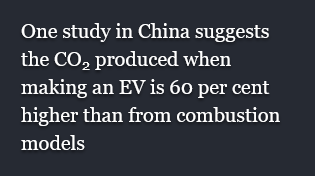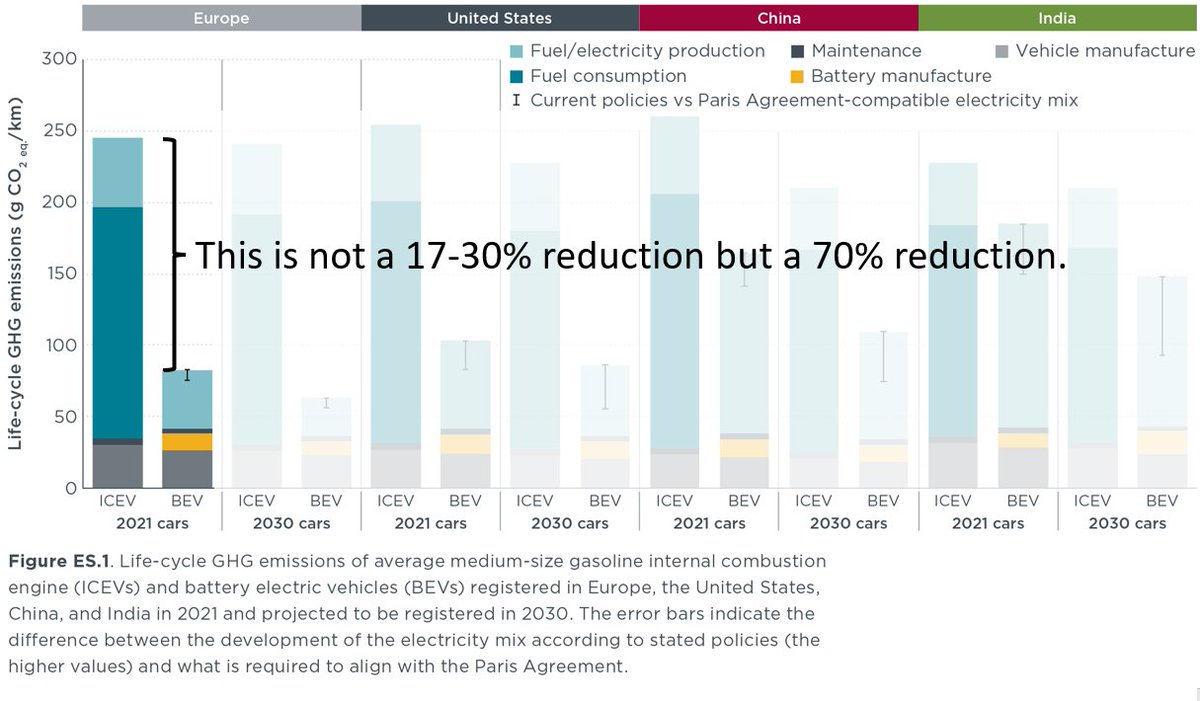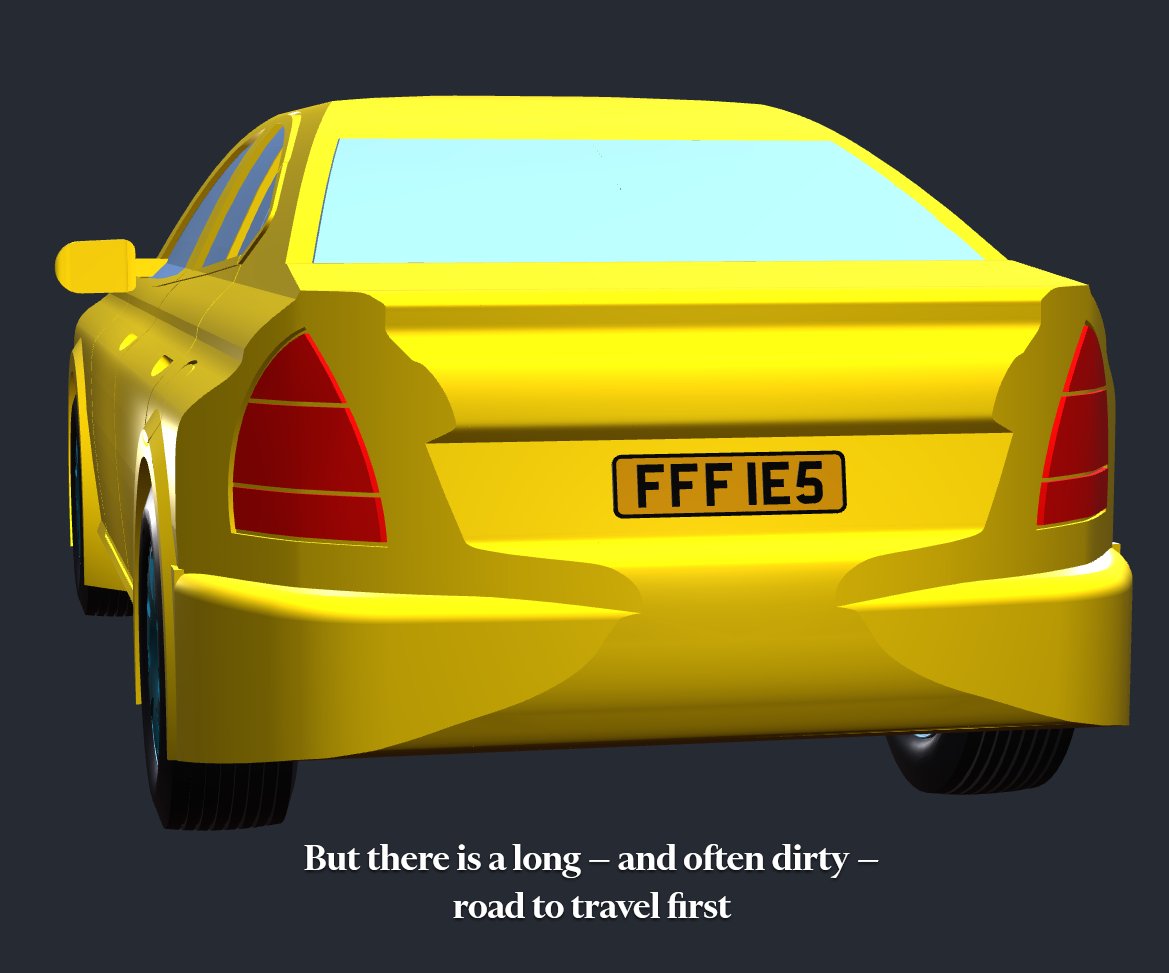
Are electric cars as bad as the @FT wants us to believe?
That's something I study at the @TUeindhoven so I always read such stories with interest.
tl;dr All cars are bad but the advantage of EVs is much bigger than the @FT visual storytelling team wants you to believe.
That's something I study at the @TUeindhoven so I always read such stories with interest.
tl;dr All cars are bad but the advantage of EVs is much bigger than the @FT visual storytelling team wants you to believe.
https://twitter.com/jburnmurdoch/status/1445280543331979265
First compliments where compliments are due: it's beautifully done.
And I think this is successful as an attempt to tell a story about the environmental problems of EVs.
Just don't mistake it for an attempt to be objective.
And I think this is successful as an attempt to tell a story about the environmental problems of EVs.
Just don't mistake it for an attempt to be objective.

Then comes the turn in the story. And they immediately give the plot away:
We are not going to say EVs are worse: we are not radicals.
We are just going to pooh pooh and minimize the difference.


We are not going to say EVs are worse: we are not radicals.
We are just going to pooh pooh and minimize the difference.



One study in China indeed suggests 60% more.
The study also says it's 3x less in the US where but that does not fit the storyline.
And in 2015 (the data sources of this study) battery production emitted around 200 kg CO2 per kWh of battery.
In 2021 it was around 75...
The study also says it's 3x less in the US where but that does not fit the storyline.
And in 2015 (the data sources of this study) battery production emitted around 200 kg CO2 per kWh of battery.
In 2021 it was around 75...

Also this tidbit: mining a tonne of lithium emits as much as the electricity from one or two US homes. Sounds dramatic but...
you can make about a hundred car batteries from one tonne of lithium...
So mining lithium for your EV emits less than your house electricity for a week?
you can make about a hundred car batteries from one tonne of lithium...
So mining lithium for your EV emits less than your house electricity for a week?

Just pointing out they said production adds 60% emissions before and they say 33% here.
(Producing the rest of the EV actually emits less CO2 than producing a combustion car because the electric drivetrain is so much lighter.)
(Producing the rest of the EV actually emits less CO2 than producing a combustion car because the electric drivetrain is so much lighter.)

This is clever: they *seem* to suggest that charging an EV in China makes you emit 66% of driving a combustion car.
But the data they use actually includes battery production. Charging alone emits significantly less.

But the data they use actually includes battery production. Charging alone emits significantly less.


This is the actual table of the report they quote. I think it gives a different impression but I'll let you be the guide. 

They claim the advantage of an EV in the EU is 17-30%. That is true in an outdated 2018 report using the infamous Swedish study that would halve battery emissions two years later.
Didn't they notice that they just quoted a newer study that actually shows the advantage is 70%?

Didn't they notice that they just quoted a newer study that actually shows the advantage is 70%?


"30 years from now EVs will emit significantly less CO2"
Whaaat??
We don't have to wait for that.
They already emit 70% less in the EU, 60% less in the US and about 30% less in China, according to their own source most recent source.
That's pretty significant to me.
Whaaat??
We don't have to wait for that.
They already emit 70% less in the EU, 60% less in the US and about 30% less in China, according to their own source most recent source.
That's pretty significant to me.

Which leads to their long awaited conclusion: maybe one day EVs will have a minimal impact but there's a long and dirty road to travel first.
You can sense how all the data was cherry-picked to fit this neat - and combustion fan friendly - conclusion that they started with.

You can sense how all the data was cherry-picked to fit this neat - and combustion fan friendly - conclusion that they started with.


I think we should acknowledge that insofar as we want to drive cars, the electric motor is the only potentially green game in town and we should switch a.s.a.p.
That's a simpler conclusion but probably less appealing to FT readers.
That's a simpler conclusion but probably less appealing to FT readers.
P.s. To be clear: I *do* acknowledge that producing EVs is dirtier than producing normal cars and although EVs emit much less CO2 already and can get very close to zero eventually, the mining causes problems. So smaller or shared vehicles are a lot cleaner than larger ones.
P.s.s. Someone asked a link to more material. If you look in my pinned thread you will find a number of my studies showing how to correctly make such calculations and what the results are.
• • •
Missing some Tweet in this thread? You can try to
force a refresh






